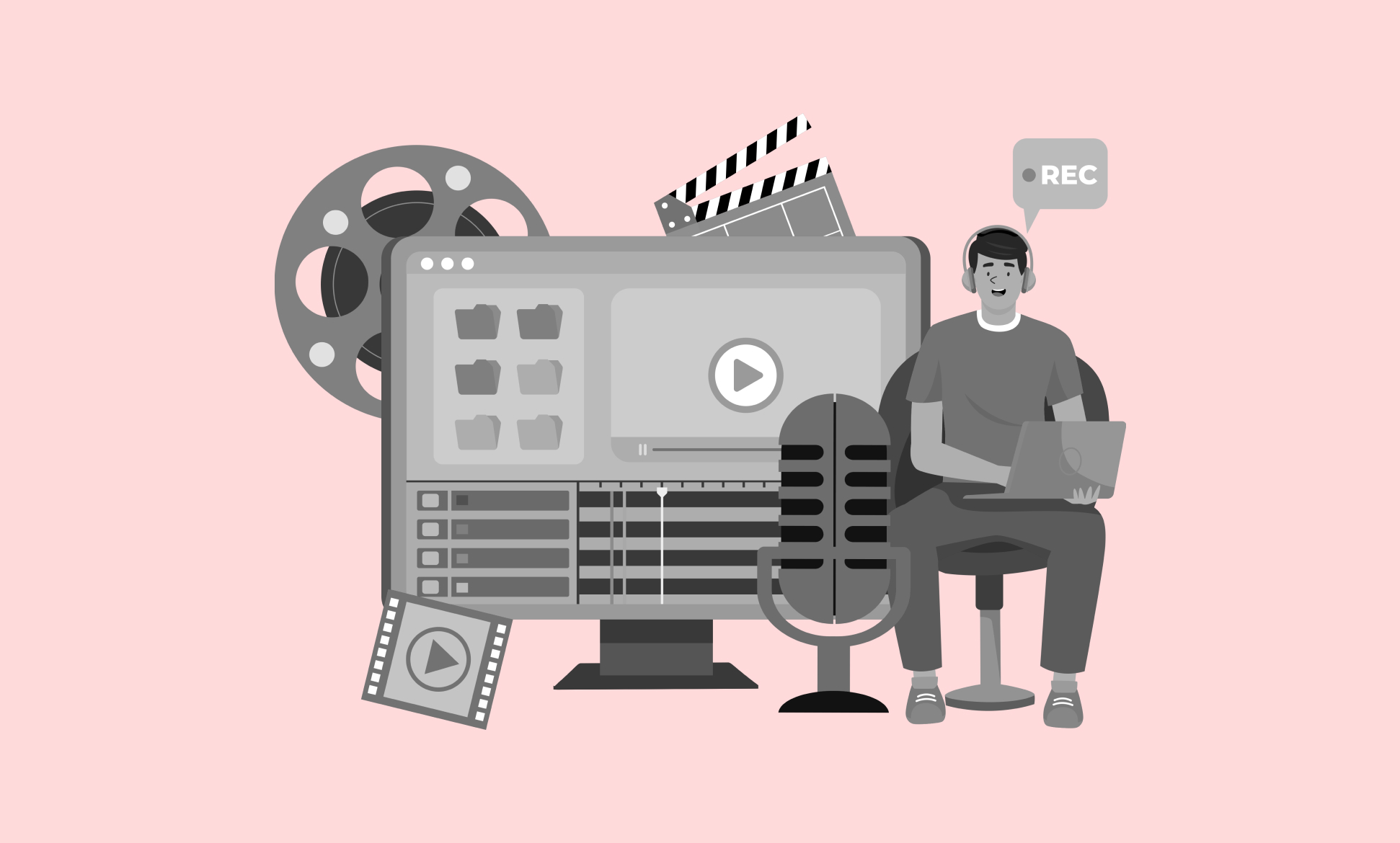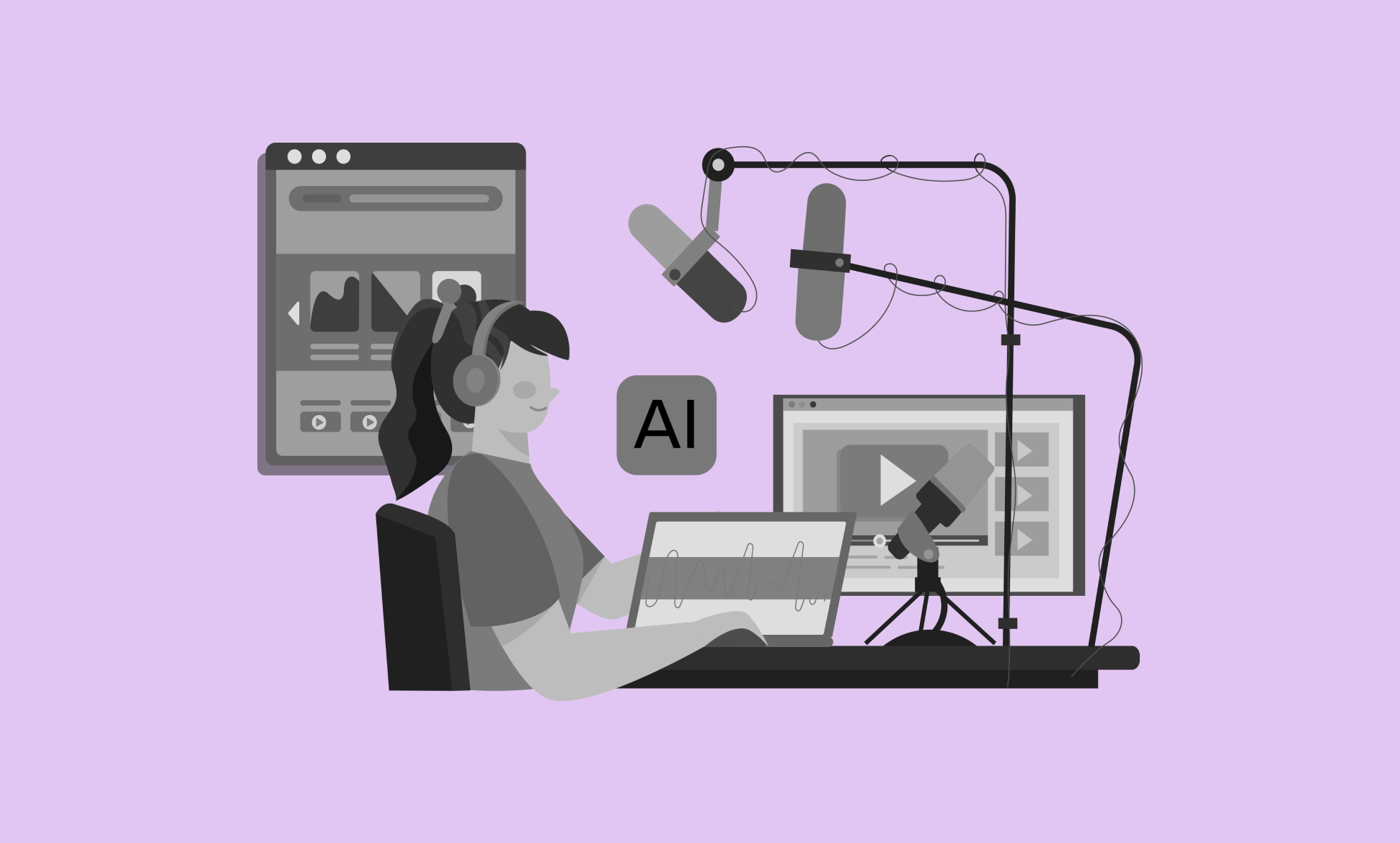The days of mass communication are over and personalization has taken its place.
From tailored advertisements to customized email campaigns, consumers expect brands to understand their unique preferences and deliver content that speaks directly to their interests.
In fact, 70% of brands have opted to ditch cold outreach and focus on ABM and other personalized marketing strategies in 2023.
Branded podcasts have emerged as a powerful tool for engaging with audiences on a deeper level, but to truly stand out, you need to go beyond the generic one-size-fits-all approach.
Currently, AI-driven podcasting reaches 45 million Americans each month and AI-powered podcasts have experienced a staggering 500% growth in the past year, so now is the time to learn about how AI is already revolutionizing the industry.
In this blog post, we'll explore six innovative ways AI can personalize your branded podcast and create a more meaningful and lasting connection with your listeners.
Let’s get into it.
How AI works in branded podcasting
AI is changing by the day, but here are some of the common ways AI is currently being used to personalize your branded podcasts.
Automatic Speech Recognition (ASR) Technology
ASR is designed to convert spoken language into written text by analyzing audio data and identifying individual speech elements such as words, phrases, and sentences.
Over time, these ASR algorithms have been refined and enhanced, leading to more accurate and efficient transcriptions, translations, and content personalization.
Natural Language Processing (NLP)
NLP focuses on enabling computers to comprehend, interpret, and generate human language in a meaningful and practical manner. Leveraging advancements in NLP allows AI transcription tools to grasp the context and meaning behind spoken words, resulting in more precise transcriptions that account for language nuances, slang, and dialects.
Furthermore, this empowers the AI to handle complex sentence structures, identify speakers, and even detect emotions, thereby further enhancing transcription quality and voice customization.
AI algorithms and machine learning
AI algorithms are trained on extensive datasets of spoken language, enabling them to recognize patterns, establish rules, and make predictions. As the AI continues to process more data, its understanding of language improves, leading to enhanced transcription capabilities.
Machine learning is a crucial aspect that allows AI transcription tools to adapt and refine their performance over time. As the AI processes more podcast content and receives feedback from users, it continuously learns and becomes better at handling diverse accents, languages, and content types.
Ultimately, this continuous learning process ensures that podcast creators and listeners receive higher-quality transcriptions and translations.
"If you think of podcasting as just an audio experience, you’re missing out on the full capacity for a brand, especially when you leverage AI. AI is the biggest unlock for the amazing content covered in long-format conversations, such as podcasts, webinars, videos, and more, to generate a flywheel of evergreen content. As a B2B marketer, AI supercharges any investment in pillar content. Creating multiple pieces of content through the power of AI aligns with consumers’ preferred learning styles, as well as your business’s content strategy. Lastly, it expands your SEO reach, further taking you from a one-dimensional call-to-action medium, “listen to my podcast,” to a complete brand story, “here’s content you’d find relevant, consume it how you want."
Greg Wasserman, Head of Partnerships & Growth @ Castmagic
How AI can personalize your branded podcast
Content recommendation
AI algorithms can analyze listener behavior, preferences, and past interactions with your podcast to offer personalized content recommendations. By understanding which episodes resonate most with individual users, AI can curate a custom playlist that keeps them coming back for more.
AI algorithms can cluster your podcast episodes into different categories or themes. This can help organize your content and make it easier to recommend relevant episodes to listeners.
Alternatively, you can leverage collaborative filtering algorithms that look at the listening history and preferences of similar listeners to recommend content that aligns with their interests. This technique is commonly used in recommendation systems and can be adapted for podcasts.
This approach not only boosts engagement but also showcases your commitment to providing valuable content tailored to each listener's interests.
Dynamic Ad Insertion (DAI)
AI algorithms offer advertisers the ability to dynamically incorporate personalized advertisements into live video streams by analyzing real-time data from viewers. These algorithms take into account various factors like viewer demographics, location, and viewing habits to select the most fitting ads, which are then seamlessly inserted during appropriate ad slots.
This dynamic ad insertion approach ensures that the ads closely align with the viewer's interests, reducing disruptions and ultimately improving the overall viewer experience.
The feature allows you to replace outdated or time-sensitive ads in previously published episodes without re-recording the entire content. You can even leverage AI ads in live streams and live podcasting, revolutionizing the way brands connect with viewers in real time.
By serving relevant ads, you enhance the user experience and increase the likelihood of conversions for advertisers. This level of personalization not only benefits your brand but also creates a sense of authenticity and understanding for your audience.
Some platforms that offer dynamic ad insertion include:
Transcription and search optimization
AI-driven transcription services can help transform your podcast episodes into searchable content. By converting audio into text and leveraging natural language processing, AI enables listeners to find specific topics, quotes, or keywords with ease.
Transcriptions have the potential to greatly expand the reach and availability of your content. Not everyone is able or inclined to consume audio content; reasons may include hearing impairments, individual preferences, or specific situations. By providing transcriptions, you can guarantee that your content is inclusive and accessible to a wider audience.
Beyond accessibility, transcriptions are perfect for search engine optimization (SEO). Converting your audio content into text makes it searchable by search engines, substantially boosting the visibility and audience reach of your podcast.
CoHost's transcription feature uses AI to convert podcast audio into written text, effectively and efficiently. Here are just a few of its unique features:
- Accuracy and speed: CoHost's AI-powered transcription service prides itself on the precision and quality of its transcriptions with the ability to develop the content in under 3 minutes with 95-99% accuracy. The AI is designed to understand multiple accents, speakers, and subjects, making it adaptable to various podcast themes and industries.
- Editable transcripts: After the AI generates the initial transcript, users have the ability to edit the text, ensuring that the final output is in line with the original audio content.
- Timestamp tagging: CoHost's transcription tool automatically tags time stamps, which makes it easier for listeners and readers to navigate through the content. This feature is especially useful when you want to reference a particular part of the podcast.
Voice and tone customization
AI-generated voice technology allows you to create personalized greetings or messages for individual listeners. Addressing them by name or using preferred pronunciations can make your podcast feel more intimate and relevant to each listener, building stronger connections and loyalty to your brand.
AI-powered text-to-speech (TTS) technology allows brands to convert written content into spoken audio with a specific voice profile. Brands can choose from a variety of voices that align with their brand personality, be it warm and friendly, authoritative, humorous, or any other tone they want to convey.
While this feature is still used and has additional applications for time-sensitive updates or quickly generating multiple language versions of the same content, sometimes the voices can sound robotic or “unnatural.”
With that, it is important to keep in mind that the main goal of podcasts is authenticity and connection, so while this feature presents a lot of benefits for production teams, it can fool listeners. We highly encourage you to put a disclaimer that tells listeners that they’re listening to AI should your brand decide to go in this direction.
Some AI-powered voiceover platforms include:
Personalized call-to-actions
By leveraging AI analytics, you can determine the most suitable call-to-action (CTA) for each listener. Whether it's directing them to a specific landing page, suggesting related content, or inviting them to participate in a survey, personalizing CTAs can enhance engagement and lead to more meaningful interactions with your brand.
By leveraging AI to personalize CTAs, brands can tailor the podcast content and recommendations to the specific interests and preferences of individual listeners. This leads to a more engaging and enjoyable experience for the audience, as they receive content that aligns with their needs and tastes.
Tailoring CTAs based on listeners' preferences and behaviors can lead to better conversion rates. When the CTA is relevant and compelling to each individual listener, they are more likely to follow through with the desired action, whether it's visiting a website, purchasing a product, or signing up for a service.
Localized and internationalized content
AI can assist in localizing content for different regions and cultures. By customizing language, references, and cultural nuances, you can create a more inclusive and personalized podcast experience for your global audience.
AI language models can translate podcast content into various languages and identify culturally sensitive content and adapt it to suit the target audience's cultural norms and practices.
AI-driven localization ensures that the content is relevant to each region's specific needs and interests. This feature can help reach new markets and connect with listeners from different regions, cultures, and languages, thereby increasing brand reach.
Whenever possible, we still suggest having a native speaker on your team edit these translations. While these models are self-learning, as time goes on, they can provide even more accurate and nuanced translations, they are still not 100% accurate.
Are you ready to personalize your podcast with AI?
By tailoring content to individual preferences, AI ensures that each listener feels like the podcast was designed specifically for them, fostering a sense of loyalty and engagement. Through smart recommendation algorithms, listeners are effortlessly introduced to relevant episodes, encouraging binge listening and prolonged engagement with your brand.
However, remember that AI cannot trump human creativity and authenticity. While the potentials for AI in podcasting are vast, we still suggest that marketers be mindful of ethical considerations and the current limitations of AI.
If you want to learn more about branded podcasts, chat with our team!




.webp)






